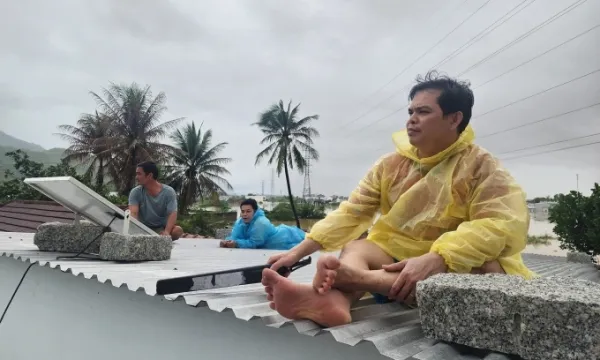Why ₹1 Lakh a Month Still Feels “Not Enough” in India
Times Life | November 22, 2025 12:39 AM CST

At first glance, many young Indians seem to be “winning”: decent jobs, rising salaries, and the freedom to spend. But dig a little deeper, and you’ll find a collective burnout, a silent stress that matches the ambition. Here are the real forces at play and what they mean for this generation.
The Cost of Survival Is Crushing
Living in a major Indian city feels like running a never-ending race. Rent alone can devour 30–50% of take-home pay for someone earning ₹1 lakh a month. Then there’s the spiraling cost of food, utilities, transport, essentials that just don’t feel “essential” when they leave you with almost nothing to save. According to a 2024–2025 study, 85% of young savers cite high living costs, food, utilities, transport, as their biggest barrier.
When more of your income is being used just to keep a roof over your head, the idea of “getting ahead” starts to feel like a fantasy.
Aspirations Don’t Wait for a Rainy Day
Yes, we earn to live, but many of us also earn to become. Trips, designer bags, the latest phone, these are more than just wants. They’re symbols: of success, of self-worth, of the life we dreamed of when we stayed up late studying. Yet every time we upgrade, the cost creeps higher and credit often fills the gap.
This isn’t just reckless spending. For many, credit is a calculated tool. A recent survey found that a significant portion of young Indians borrow not just for consumption but for education and self-improvement. But when aspiration meets easy credit, it can spiral. Credit card debt has exploded.
Saving Is a Ritual, but Not Always Enough
Here’s the paradox: most young Indians do save. According to a 2024-2025 survey, 93% of young savers set aside money regularly, often as much as 20–30% of their income. Yet, despite this discipline, many still feel exposed. More than half of Indians say their savings are not enough for the future.
Why? Because financial education, especially in real-life wealth creation, is still weak. Schools teach us to land a 9–5. They don’t teach us how to build multiple income streams, how to invest meaningfully, or how to let money work for us. Without these skills, even well-earned money struggles to multiply.
The Comparison Trap Is Poisonous
One of the most invisible taxes we pay is social. There’s always someone, a peer, a colleague, a childhood friend, doing “better.” They travel more, earn more, work more flexibly, live more freely. And in the age of social media, their highlight reel is on full display.
That constant comparison breeds dissatisfaction. Even as we strive for financial stability, we measure ourselves by someone else’s success: the successes we can see, but not their burdens. It’s not just FOMO; it’s spiritual fatigue. We climb, but feel like we’re falling behind.
A Deeper TruthWhat’s really going on isn’t just economic, it’s existential. We’re a generation caught between: Collective heritage and modern freedom: taught to save, but seduced by global aspirations. Stability and risk: longing for a safety net, but unable to stop chasing what’s next. Ability and insecurity: we can earn, but we constantly fear that it’s not enough, or that we’re not using our “good salary” the “right” way. That leaves us in a strange place: financially capable, but emotionally precarious.
It’s not enough to know how to save. Schools, workplaces, and communities should teach investing, passive income, entrepreneurship, and risk, real tools for financial independence. We need to redefine what “success” means. It’s not only about the latest phone or the #jetsetter vacation. Fulfillment can be built on balance, security, and purpose. Credit can be powerful as a tool, but it’s dangerous when used blindly. Understanding debt, what to take on, when, and why, is critical. We must acknowledge the emotional toll of comparison. Cultivating gratitude, gratitude-focused financial habits, and long-term perspective can help anchor us.
Final ThoughtYoung Indians today are navigating a hidden financial battleground. Even with “good” pay, many feel trapped, not by lack of ambition, but by the very system that promises progress. The real crisis is not just monetary: it’s a crisis of meaning, education, and expectation.
If more of us could learn not just to earn, but to grow, in wealth, in wisdom, maybe then, we wouldn’t feel so perpetually “behind.” We’d feel powerful, not just prosperous.
The Cost of Survival Is Crushing

High city living costs eat income, leaving little room to save.
Living in a major Indian city feels like running a never-ending race. Rent alone can devour 30–50% of take-home pay for someone earning ₹1 lakh a month. Then there’s the spiraling cost of food, utilities, transport, essentials that just don’t feel “essential” when they leave you with almost nothing to save. According to a 2024–2025 study, 85% of young savers cite high living costs, food, utilities, transport, as their biggest barrier.
When more of your income is being used just to keep a roof over your head, the idea of “getting ahead” starts to feel like a fantasy.
Aspirations Don’t Wait for a Rainy Day
Ambition fuels spending and credit, making financial progress harder.
Yes, we earn to live, but many of us also earn to become. Trips, designer bags, the latest phone, these are more than just wants. They’re symbols: of success, of self-worth, of the life we dreamed of when we stayed up late studying. Yet every time we upgrade, the cost creeps higher and credit often fills the gap.
This isn’t just reckless spending. For many, credit is a calculated tool. A recent survey found that a significant portion of young Indians borrow not just for consumption but for education and self-improvement. But when aspiration meets easy credit, it can spiral. Credit card debt has exploded.
Saving Is a Ritual, but Not Always Enough

People save regularly, but lack investment skills to grow wealth.
Here’s the paradox: most young Indians do save. According to a 2024-2025 survey, 93% of young savers set aside money regularly, often as much as 20–30% of their income. Yet, despite this discipline, many still feel exposed. More than half of Indians say their savings are not enough for the future.
Why? Because financial education, especially in real-life wealth creation, is still weak. Schools teach us to land a 9–5. They don’t teach us how to build multiple income streams, how to invest meaningfully, or how to let money work for us. Without these skills, even well-earned money struggles to multiply.
The Comparison Trap Is Poisonous

Constant social comparison creates dissatisfaction despite personal achievements.
One of the most invisible taxes we pay is social. There’s always someone, a peer, a colleague, a childhood friend, doing “better.” They travel more, earn more, work more flexibly, live more freely. And in the age of social media, their highlight reel is on full display.
That constant comparison breeds dissatisfaction. Even as we strive for financial stability, we measure ourselves by someone else’s success: the successes we can see, but not their burdens. It’s not just FOMO; it’s spiritual fatigue. We climb, but feel like we’re falling behind.
A Deeper TruthWhat’s really going on isn’t just economic, it’s existential. We’re a generation caught between: Collective heritage and modern freedom: taught to save, but seduced by global aspirations. Stability and risk: longing for a safety net, but unable to stop chasing what’s next. Ability and insecurity: we can earn, but we constantly fear that it’s not enough, or that we’re not using our “good salary” the “right” way. That leaves us in a strange place: financially capable, but emotionally precarious.
It’s not enough to know how to save. Schools, workplaces, and communities should teach investing, passive income, entrepreneurship, and risk, real tools for financial independence. We need to redefine what “success” means. It’s not only about the latest phone or the #jetsetter vacation. Fulfillment can be built on balance, security, and purpose. Credit can be powerful as a tool, but it’s dangerous when used blindly. Understanding debt, what to take on, when, and why, is critical. We must acknowledge the emotional toll of comparison. Cultivating gratitude, gratitude-focused financial habits, and long-term perspective can help anchor us.
Final ThoughtYoung Indians today are navigating a hidden financial battleground. Even with “good” pay, many feel trapped, not by lack of ambition, but by the very system that promises progress. The real crisis is not just monetary: it’s a crisis of meaning, education, and expectation.
If more of us could learn not just to earn, but to grow, in wealth, in wisdom, maybe then, we wouldn’t feel so perpetually “behind.” We’d feel powerful, not just prosperous.
READ NEXT
-
School Holiday: Why are schools and colleges closed on 21st November for the students of these states, see the complete list soon

-
Flood victims stuck on roofs in central Vietnam await rescue

-
Teenagers plead not guilty over Transport for London cyber attack

-
Cloudflare CTO Dane Knecht reveals what crashed half the internet on November 18- The Week

-
Google Unveils Nano Banana Pro with 4K Image Generation
